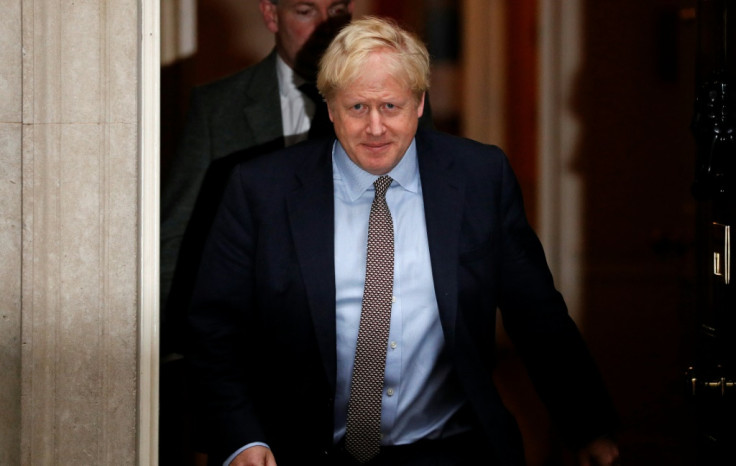Pound struggles as Boris Johnson eyes election to break Brexit logjam
MPs will decide Monday on whether to agree to the election, just as the EU is due to announce a three-month extension to the deadline.
Sterling struggled to bounce back from losses owing to renewed Brexit uncertainty after Boris Johnson proposed a general election to resolve the long-running saga, while Asian markets were mostly down after a broadly positive week.
With the prime minister giving up on a pledge to leave the EU by his Halloween deadline, he called for a December 12 national vote that would likely give his Conservative party enough MPs to eventually pass the agreement.
However, opposition lawmakers have said they will only vote for a snap poll if they are guaranteed Britain will not leave the EU without a deal, meaning there is a good chance his election bid will fail.
MPs will decide Monday on whether to agree to the election, just as the European Union is due to announce a three-month extension to the deadline.
The pound, which this week broke $1.30 for the first time in five months on optimism a no-deal Brexit will be avoided, went into retreat Thursday and held around the $1.2840 mark in Asia. The euro also extended gains against the British unit.
"A sense of rational optimism around Brexit has given way to more uncertainty as to the pound, and UK risk markets were roiled" by the prospect of an election, said AxiTrader analyst Stephen Innes.
He added that a national vote would amount to a referendum on Johnson's Brexit strategy.
Equity markets were fluctuating through the morning as investors keep an eye on the events in Westminster, while also awaiting the latest developments in the China-US trade talks.
Optimism that the two economic superpowers will hammer out details for a mini agreement by next month have helped support equities this week.
Bump in the road
However, there remain concerns that the talks could be derailed at the last minute, with the passage of a US bill defending civil rights in Hong Kong the latest bump in the road.
The law would end the Hong Kong-US special trading status unless the State Department certifies annually that city authorities are respecting human rights and the rule of law.
Senators are due to agree to the legislation, following their colleagues in the House of Representatives, but China has threatened to retaliate if it becomes law.
Adding to the mix were comments from Vice President Mike Pence, who vowed support for Hong Kong pro-democracy protesters and hit out at China's trading behaviour.
"The real catalyst for rising US-China risk is the senate vote of the Hong Kong bill. China has already said it will retaliate once the bill is passed," said Rodrigo Catril at National Australia Bank.
However, he did point out that in the past "the US and China have isolated issues from the broader tariff negotiation, Huawei for example".
"While the Hong Kong issue is exponentially larger than Huawei, until more clarity unfolds this could be compartmentalised away from trade talks along with the growing laundry list of US grievances against China."
Hong Kong and Shanghai each fell 0.5 percent in the morning session while Tokyo went into the break flat.
Seoul was marginally down, with Taipei and Jakarta both 0.2 percent off but Sydney, Singapore and Wellington were in positive territory.
Key figures around 0230 GMT
Tokyo - Nikkei 225: FLAT at 22747.08 (break)
Hong Kong - Hang Seng: DOWN 0.5 percent at 26,668.42
Shanghai - Composite: DOWN 0.5 percent at 2,925.05
Euro/pound: UP at 86.46 pence from 86.41 pence at 2045 GMT
Pound/dollar: DOWN at $1.2844 from $1.2846
Dollar/yen: DOWN at 108.64 yen from 108.66 yen
Euro/dollar: UP at $1.1105 from $1.1101
West Texas Intermediate: DOWN 20 cents at $56.03 per barrel
Brent North Sea crude: DOWN 22 cents at $61.45 per barrel
New York - Dow: DOWN 0.1 percent at 26,805.53 (close)
London - FTSE 100: UP 0.9 percent at 7,328.25 (close)
Copyright AFP. All rights reserved.

This article is copyrighted by International Business Times, the business news leader





















